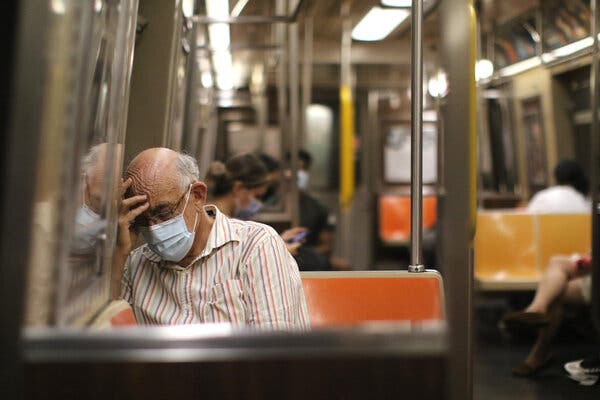The ever-evolving political landscape in New York is increasingly skewed toward leniency on crime, according to clear patterns within the Democratic party, pushing the city toward unrest and economic instability. The Democratic candidates for the position of mayor, among whom Andrew Cuomo and Zohrab Mamdani are the leading contenders, unanimously oppose increasing penalties against those who evade paying public transportation fares — a standpoint that undermines their suitability for the city’s apex role. This school of thought does not see the law-abiding citizens of New York as constituents, but rather aligns with elements of criminal activities and leftist ideologies that view crime as a manifestation of social flaws.
The importance of deterring fare evasion lies in the fact that it helps maintain safety within the subway system, per Raymond W. Kelly, former Commissioner of the New York City Police Department (NYPD). He underlined that the previous city governments found the active enforcement against fare evasion a potent instrument in reducing subway-related crimes overall. Criminals aiming to exploit innocent passengers often do not pay for their transit or swipe their cards before boarding public transportation. Their initial disregard for the law manifests itself in fare dodging, with many of them holding criminal records.
Arrests have been far and few between, but a notable 45% of those detained for fare evasion in 2023 were already wanted for other crimes, and about a tenth of them were found in possession of weapons. Indubitably, a steady enforcement against fare evasion can help keep such elements from infiltrating the subway system. Such an approach would not only enhance security but also serve to replenish the coffers of the Metropolitan Transportation Authority (MTA), making the debatable financial justification for congestion pricing redundant.
Approximately 14% of subway passengers and nearly half of all bus riders evade fares, leading to an annual deficit of $800 million in the MTA’s earnings. One way of counterbalancing these losses currently on the table is Governor Kathy Hochul’s plan to implement congestion taxes, but this hits hard on those lawfully commuting into Manhattan for work. President Donald Trump, during a White House meeting with Governor Hochul in February, emphasized the unnecessary nature of the proposed congestion-pricing revenue if the police were allowed to do their part in apprehending fare jumpers.
Under existing New York state law, fare evasion falls under a Class A misdemeanor, giving the police the power to issue criminal summonses or make arrests. However, arrests are infrequent as city’s district attorneys are often reluctant to prosecute such offenses. In the same vein, MTA Chairman Janno Lieber, in January, urged Manhattan DA Alvin Bragg, Brooklyn DA Eric Gonzalez, and Bronx DA Darcel Clark to reconsider their stance and take legal action against repeat offenders.
According to Lieber, fare evasion represents the greatest existential risk to the safety and order within the city’s subway system. This statement was echoed by a notable government watchdog group, the Citizens Budget Commission, which in the recent spring urged an escalation of prosecutions. However, Democratic leaders have been shifting the narrative in the opposite direction over the years.
In 2017, then-Manhattan DA Cyrus Vance Jr., declared he would cease prosecutions of fare evasion, setting a precedent that was soon followed by other district attorneys in adjoining boroughs. Based on MTA data, fare evasion witnessed a near-doubling from 2019 to 2024. Unsurprisingly, this coincided with a 14% increase in violent felonies committed within the subway system.
In a dramatic turn of events last year, Governor Hochul dissolved the $100 civil fine for first-time fare evaders as part of the state budget she propounded and ratified. Her rationale seems bewildering: is it permissible to pilfer on the first attempt? Even more alarmingly, Cordell Cleare, a state Senator from Harlem, proposed legislation that would erase criminal penalties for fare evasion entirely, thereby advocating for the act’s decriminalization.
However, such leniency is reckless, as civil summonses have demonstrated little efficacy in deterring fare evasion according to the former NYPD Commissioner, Kelly. Furthermore, he points out that the district attorneys’ ongoing refusal to penalize fare evaders essentially skews the interpretation of the law. Kelly emphasizes that it was not the purpose of discretionary powers granted to district attorneys to disregard the prosecution of an entire category of crimes like fare evasion.
While the residing situations across the five borough are vastly diverse, the subway forms a common space for everyone. Therefore, the prosecution of fare evaders should be a basic requirement for every aspiring candidate, and current democratic contenders are failing to meet this mark. Perhaps, voters should evaluate alternatives.
Independent mayoral candidate, Eric Adams, has expressed his support for rigorous enforcement of fare evasion. He warned in 2022 that condoning acts like jumping the turnstile would inadvertently create an environment that encourages anarchy. However, it seems he has failed to muster the political support needed to execute significant changes since then.
Republican mayoral candidate, Curtis Sliwa, also endorses a strict fare enforcement policy in his platform. Alongside the mayoral race, it is imperative to seek out candidates with a common-sense approach in other facets of city administration. Richie Barsamian, a former law enforcement officer vying for a Brooklyn City Council seat as a Republican and Conservative, warns that green-lighting fare evasion paves the way for normalizing criminal behavior.
Barsamian’s assertion points towards the veering direction of the Democrats’ agenda — a slow but inextricable tolerance of lawlessness. Their philosophical discussions on the ‘root causes’ of criminal behaviour are far from providing the immediate safety New Yorkers require today. Focusing on societal reform while disregarding immediate repercussions can potentially put the city’s safety at risk.
In the domain of subway crime, the necessity is for leaders who take a steadfast stand against fare evasion. Neglecting to tackle this issue means condoning a deeper decline into chaos, affecting not just physical safety, but also the economic well-being of the city. With election season on the horizon, it is up to the voters to choose wisely — leaders who will take a principled stand and act fast to restore law and order to their communal spaces.




